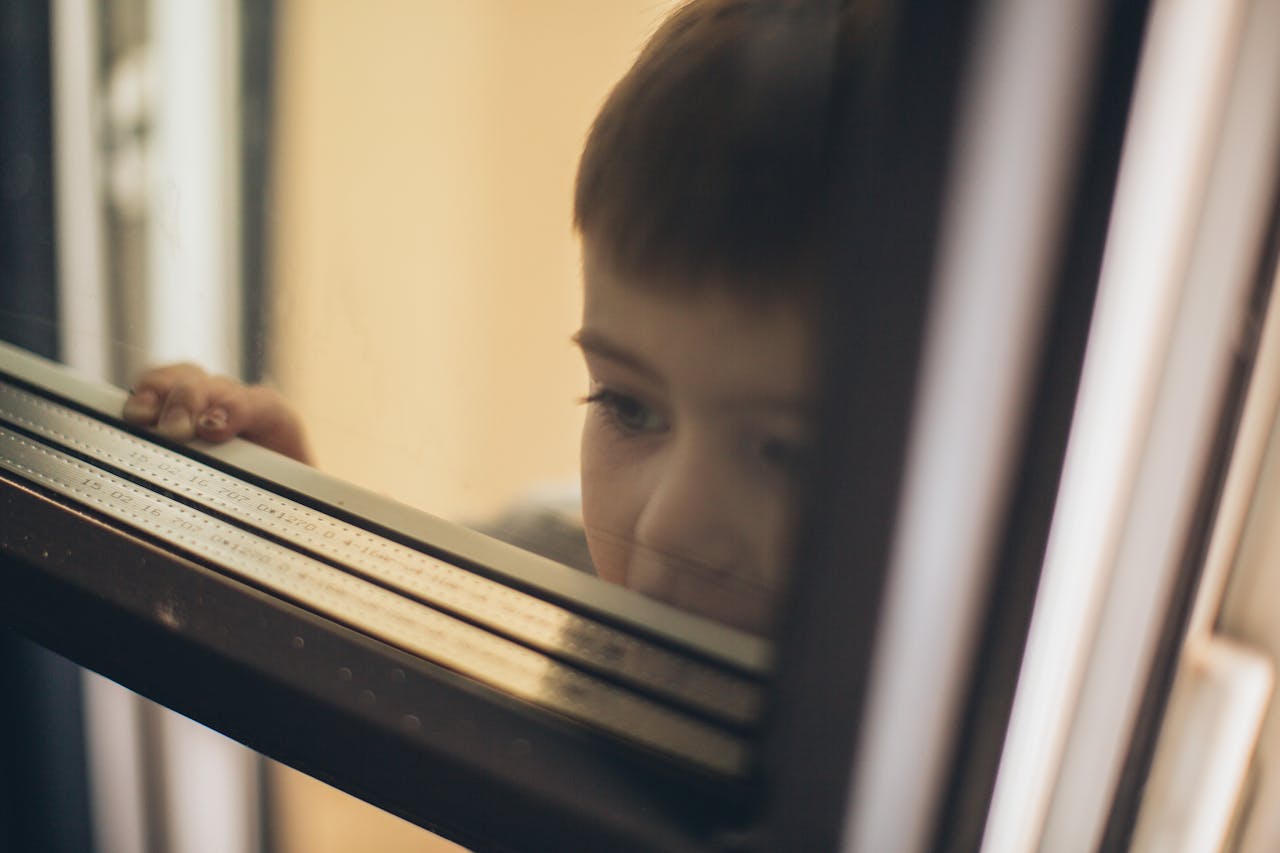Meaning of Right Upper Eyelid Twitching According to Javanese Primbon
Learn the meaning of right upper eyelid twitching in Javanese primbon. Discover scientific explanations and how to address it. Read the full article here!



children (credit: pexels.com)
Dreams of missing children are a fairly common sleeping experience for parents and other adults. In this dream, someone sees or feels the loss of a child, whether it is their own child or someone else's. Feelings of anxiety, fear, and panic usually accompany this dream.
In general, dreams of missing children can be interpreted as a reflection of the fears and anxieties that a person feels in real life, especially related to children or loved ones. This dream can also symbolize feelings of losing control over some aspect of life.
Although it feels frightening, it is important to remember that dreams are not reality. Dreams of missing children are better understood as symbols or metaphors of a person's psychological condition, not as signs or predictions about the future.
There are several factors that can trigger someone to experience dreams of a missing child:
Understanding the causes behind missing child dreams can help someone respond to these dreams more wisely and take appropriate action to address anxiety in real life.
Dreams about missing children can appear in various forms. Here are some common types of missing child dreams along with their possible meanings:
It is important to remember that dream interpretation is highly subjective and can vary depending on the context of each individual's life. Understanding the various types of dreams about lost children can help you analyze your feelings and situations in your life more effectively.

children (credit: pexels.com)
In Javanese tradition, dreams are considered messages or signals from the supernatural realm. The Javanese Primbon has various interpretations of dreams about lost children, which can provide insights into the meanings behind these experiences. Here are some interpretations of dreams about lost children according to the Javanese Primbon:
It is important to note that this Javanese Primbon interpretation is not absolute and may not always be relevant to modern life. However, this understanding can provide an alternative perspective in interpreting the experience of a missing child dream.
In Islamic teachings, dreams are viewed as one of the ways Allah SWT communicates with His servants. However, not all dreams have specific meanings or are signs from Allah. Here are some Islamic views on dreams of missing children:
In the Qur'an, Allah SWT says:
"Indeed, after hardship there is ease." (QS.Al-Insyirah: 6)
This verse reminds us to always be optimistic and confident that every trial, including anxiety from dreams, surely has wisdom and a way out. By firmly adhering to the teachings of Islam and continuously striving to improve ourselves, we can respond to the experience of the lost child dream wisely and with great insight.
From a psychological perspective, dreams of a lost child can provide deep insights into a person's mental and emotional condition. Some relevant psychological theories in understanding this dream include:
In the context of modern psychology, dreams of a lost child are often interpreted as:
It is important to remember that dream interpretation in psychology is subjective and contextual. Understanding a person's personal background, life experiences, and psychological conditions is crucial in analyzing the meaning behind the dream of a lost child.

children (credit: pexels.com)
Dreams about lost children can have a significant psychological impact on those who experience them. Here are some potential effects that may occur:
To cope with these psychological impacts, several steps can be taken, including:
It is important to remember that dreams, although they can feel very real, are still mental experiences that do not reflect reality. With proper understanding and handling, the negative impact of dreams about a lost child can be minimized.
Facing dreams about a lost child can be a disturbing experience. However, there are several ways to respond to this dream wisely:
Remember that every experience, including disturbing dreams, can be an opportunity for personal growth and strengthening family relationships. By responding positively and wisely to dreams about a lost child, you can gain insights and use them as motivation to become a better parent.
Nightmares like being lost can cause ongoing anxiety. Here are some tips that can help manage that anxiety:
Remember that anxiety is a normal reaction to distressing experiences such as nightmares. However, if anxiety persists and interferes with daily life, do not hesitate to seek professional help such as a psychologist or therapist.

children (credit: pexels.com)
Here are some frequently asked questions about dreams of a lost child along with their answers:
Not necessarily. This dream often reflects anxiety or worries in daily life rather than being a sign of actual events.
Although it's difficult to control dreams directly, managing stress, practicing good sleep routines, and addressing anxiety in daily life can help reduce the frequency of nightmares.
Yes, this dream is quite common, especially among new parents or those facing significant changes in family life.
Generally, it is not recommended to share frightening dreams with children, as this can cause unnecessary anxiety for them.
If this dream occurs repeatedly and is accompanied by intense anxiety in daily life, it may be wise to consult a mental health professional.
It's important to remember that everyone may have different experiences and interpretations of their dreams. If you feel disturbed by dreams of a lost child or other nightmares, don't hesitate to seek professional help.
Dreams about lost children can be experiences that evoke anxiety and worry for many people, especially parents. However, it is important to remember that these dreams often reflect a person's psychological and emotional state more than they serve as signs or predictions about the future.
Some important points that can be concluded:
Ultimately, the experience of dreaming about lost children can be an opportunity for self-reflection, strengthening family relationships, and improving parenting quality. With the right understanding and a positive attitude, we can take lessons from this experience and use it as motivation to become better individuals and parents.
If anxiety from this dream persists and disrupts daily life, do not hesitate to seek professional help. Good mental health is key to living a balanced and happy life, both as individuals and as part of a family.
(kpl/dhm)
Cobain For You Page (FYP) Yang kamu suka ada di sini,
lihat isinya
Learn the meaning of right upper eyelid twitching in Javanese primbon. Discover scientific explanations and how to address it. Read the full article here!
Have you ever experienced a twitch in your left upper eye? Check out the complete explanation according to Javanese primbon and medical insights. Discover the myths and facts behind this phenomenon.
Learn the meaning of left lower eye twitching according to primbon and medical science. Is it just a myth or is there a scientific explanation? Check out the full explanation here.
Have you ever dreamed of being fired from work? Check out the meaning and interpretation of dreaming about being fired according to Javanese primbon. It could actually be a good sign!
If you want to learn more about DeepSeek, here is an explanation of its variants and advantages. Let's check it out, KLovers!
Learn about Javanese primbon teachings, a cultural heritage rich in meaning. Discover its functions, types, and relevance in the modern era in this complete article.
Hailuo AI is not just an entertainment tool. Behind the attractive visual effects, this application is actually designed as a multifunctional AI platform capable of generating content in various formats. To better understand how this AI application works, let's take a look at the following review.
Let's take a look at 8 official watching applications that can be the best alternatives to Idlix. Guaranteed, your watching experience will be more satisfying without having to worry.
Discover the profound meaning behind dreaming of seeing a rainbow according to Javanese primbon. A symbol of luck and hope that brings good signs for life.
Learn the deep meaning behind dreams of defecating and seeing one's own feces according to Javanese primbon. Discover the complete interpretation and its meaning here.
Interested in watching the Korean drama KARMA? Check out the synopsis and some information below.
Here are six inspirations for black kebaya hijab styles designed to radiate elegance and confidence. From luxurious lace styles to casual kebaya that remains fashionable, all the following references can serve as a guide for you to stand out at various important moments.